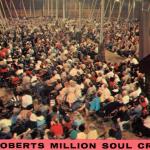Tell me how you phrase the question and I will tell you the answer you will probably get. That statement is familiar enough to the world of survey research, and it carries special weight in the age of debates over secularization and the “Nones.” But a current British example illustrates the point beautifully. I will be drawing heavily on the piece linked here, by Harriet Sherwood in the Guardian.
Here are two ways of asking a question. The current British census asks “What is your religion?” It then offers a series of choices, beginning with “no religion,” then “Christian,” and the a series of other options. Meanwhile, the much respected British Social Attitudes (BSA) survey asks, “Do you regard yourself as belonging to a religious group?” before proceeding to ask which particular one. All pretty fair and balanced, we might think. But the difference between the answers you get is enormous. The BSA finds around 50 percent of Brits have no religion. The census finds 25 percent. That is not a mere rounding error.
So what is happening? The dynamics are explained by the excellent British-based scholar David Voas, whose work I used heavily in my recent book on Fertility and Faith. As Voas says, each question assumes a radically different set of realities:
The BSA question is, ‘Do you regard yourself as belonging to a religious group?’ That notion of belonging pushes people to think, ‘Do I really belong, am I a member of a church?’… as opposed to identification with a heritage” … The census question, ‘What is your religion?’, implies everyone should have one… You end up with very different results.
Indeed you do. And we can extend that to any number of other standard questions that shape the surveys we hear about so often. Think for instance of:
Do you pray? How often? (assumes the behavior might or might not happen).
versus
How often do you pray? (assumes that everyone does it, it’s standard and normal, so where do you fit into this normality).
Asking about attendance at religious services offers comparable scope for unconsciously weighting questions.
The new census is likely to show around half the British population ticking the box for “Christian.” But again, what does that term mean? As Harriet Sherwood points out, the term “Christian” covers a wide range of behaviors and attitudes. If we look at people who responded “Christian” in earlier surveys:
Almost six in 10 (59%) said it was because they had been christened, and 49% because they were brought up to think of themselves as Christian. More than a quarter (26%) said it was “because this is a Christian country”. Over half (51%) said they never attended a place of worship or did so less than once a year. Only a third (34%) said they ticked Christian because they “believe in the teachings of Christianity”.
I have speculated that over the past quarter century or so, there has been another growing factor at work across Europe, namely that some people assert they are “Christian,” when what they actually mean is (so to speak) “Not Muslim, damn it.”
At every point, it’s interesting to compare what the picture would be in the US if the exact same questions were asked.













